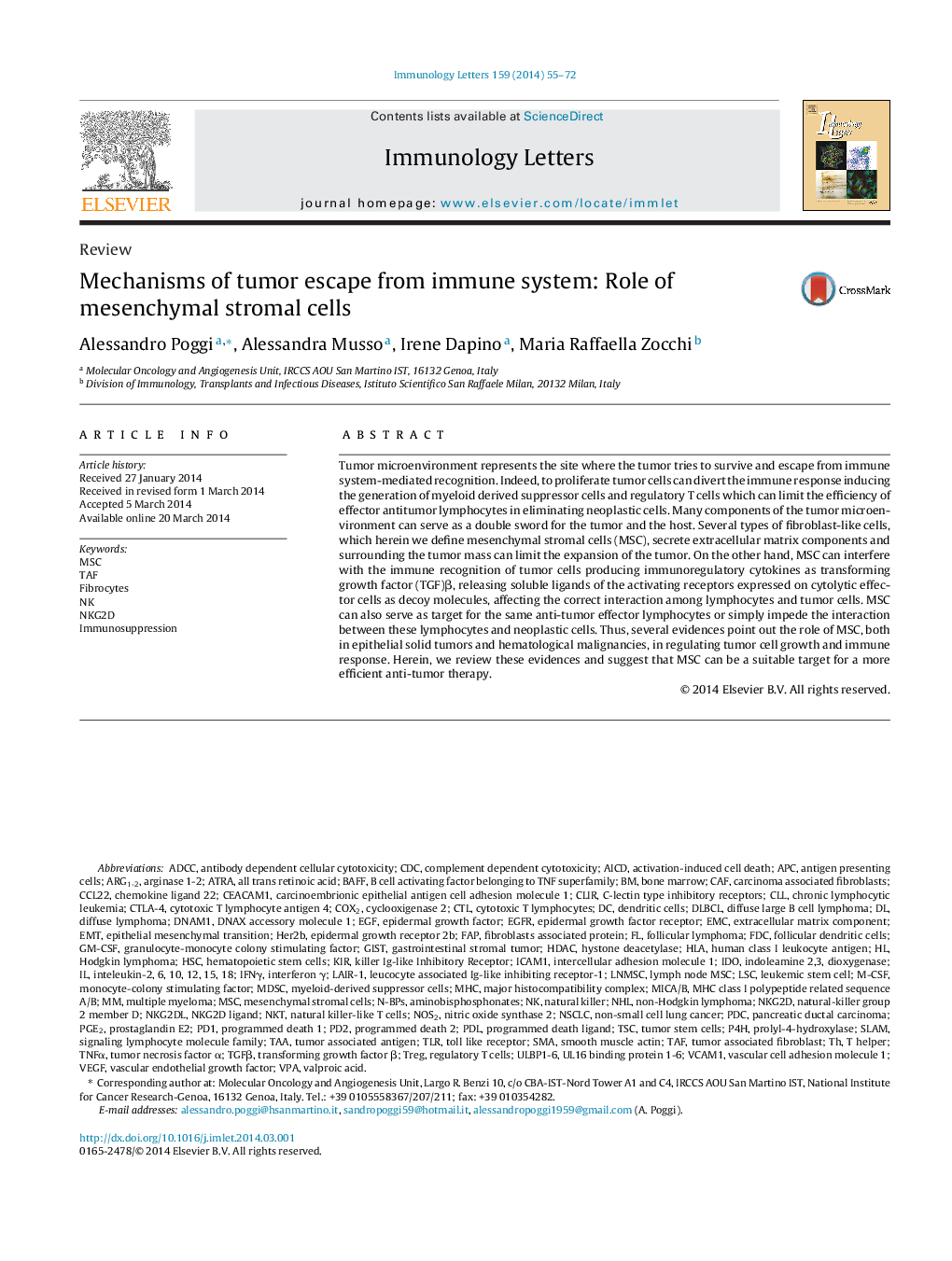| Article ID | Journal | Published Year | Pages | File Type |
|---|---|---|---|---|
| 3355477 | Immunology Letters | 2014 | 18 Pages |
•Within tumor microenvironment soluble factors and cell–cell interactions favor tumor cell escape from immune system.•Mesenchymal stromal cells (MSC) support tumor cell growth and downregulate anti-tumor effector lymphocytes.•MSC downregulate the expression and function of activating receptors of anti-tumor effector lymphocytes.•To avoid their immunosuppressive effects MSC can be targeted using humanized antibody or aminobisphosphonates.
Tumor microenvironment represents the site where the tumor tries to survive and escape from immune system-mediated recognition. Indeed, to proliferate tumor cells can divert the immune response inducing the generation of myeloid derived suppressor cells and regulatory T cells which can limit the efficiency of effector antitumor lymphocytes in eliminating neoplastic cells. Many components of the tumor microenvironment can serve as a double sword for the tumor and the host. Several types of fibroblast-like cells, which herein we define mesenchymal stromal cells (MSC), secrete extracellular matrix components and surrounding the tumor mass can limit the expansion of the tumor. On the other hand, MSC can interfere with the immune recognition of tumor cells producing immunoregulatory cytokines as transforming growth factor (TGF)ß, releasing soluble ligands of the activating receptors expressed on cytolytic effector cells as decoy molecules, affecting the correct interaction among lymphocytes and tumor cells. MSC can also serve as target for the same anti-tumor effector lymphocytes or simply impede the interaction between these lymphocytes and neoplastic cells. Thus, several evidences point out the role of MSC, both in epithelial solid tumors and hematological malignancies, in regulating tumor cell growth and immune response. Herein, we review these evidences and suggest that MSC can be a suitable target for a more efficient anti-tumor therapy.
